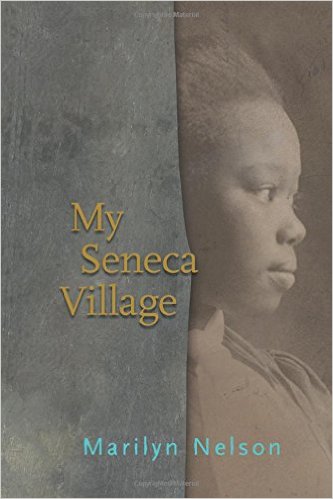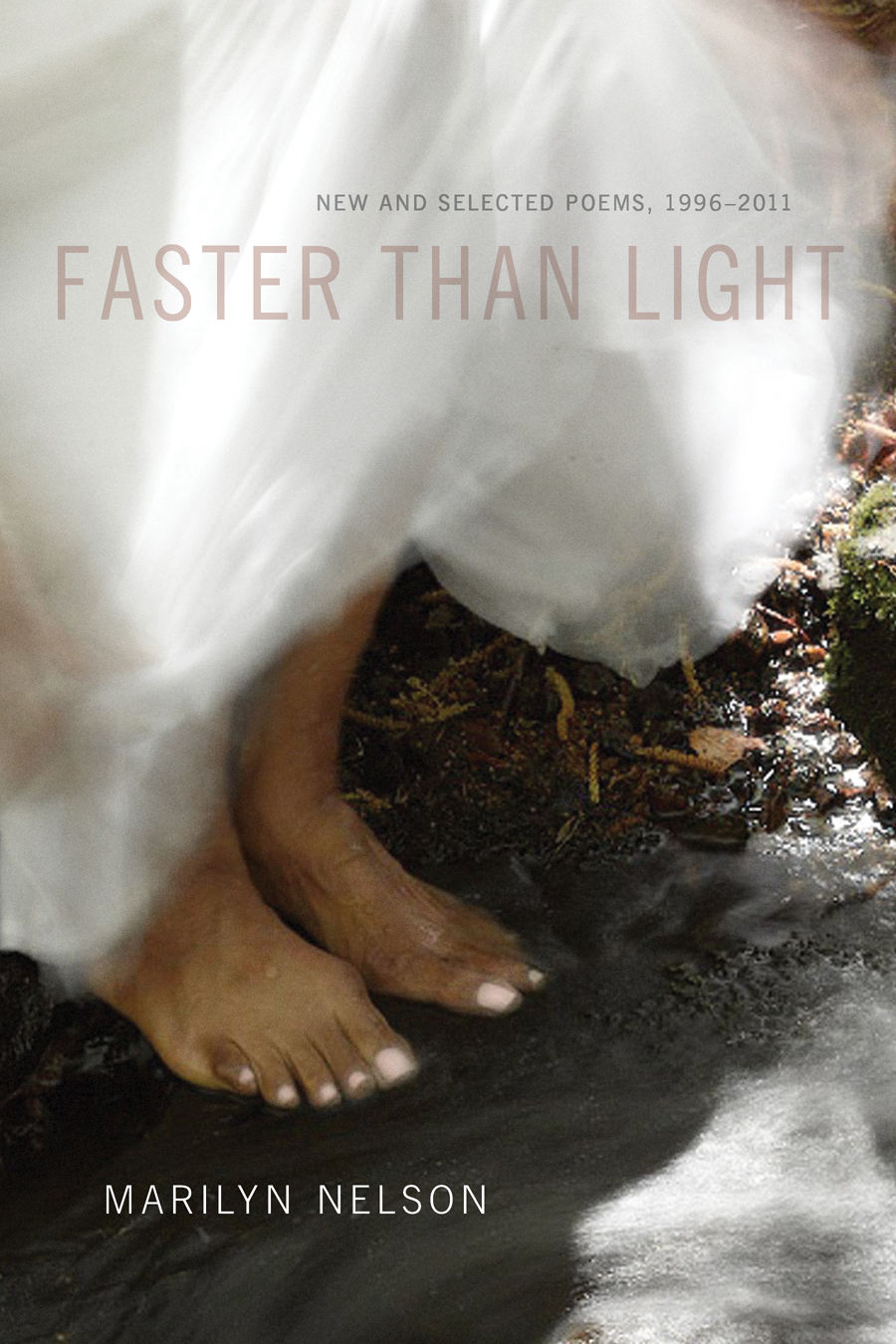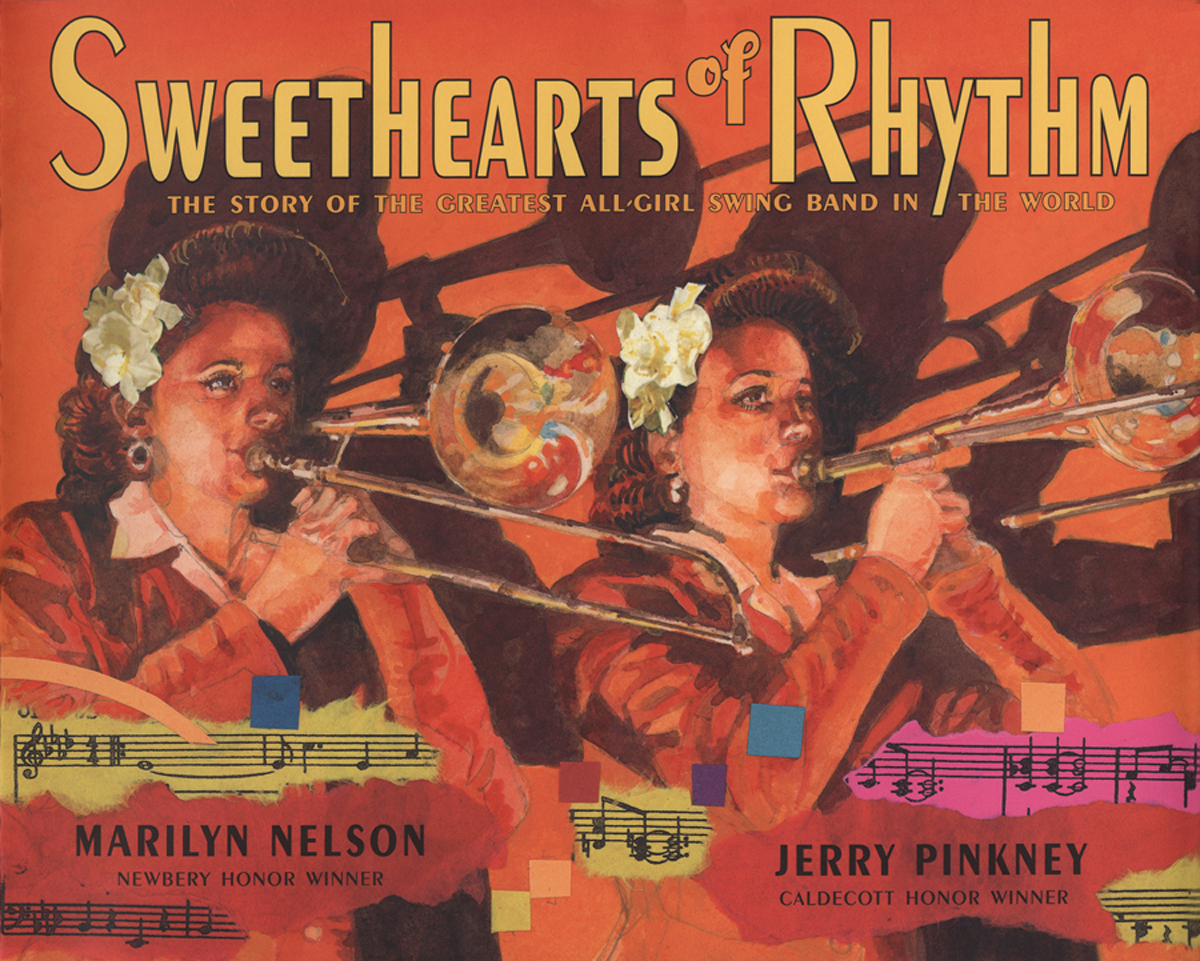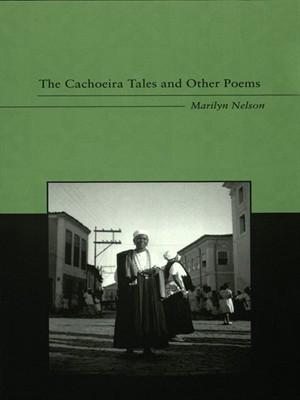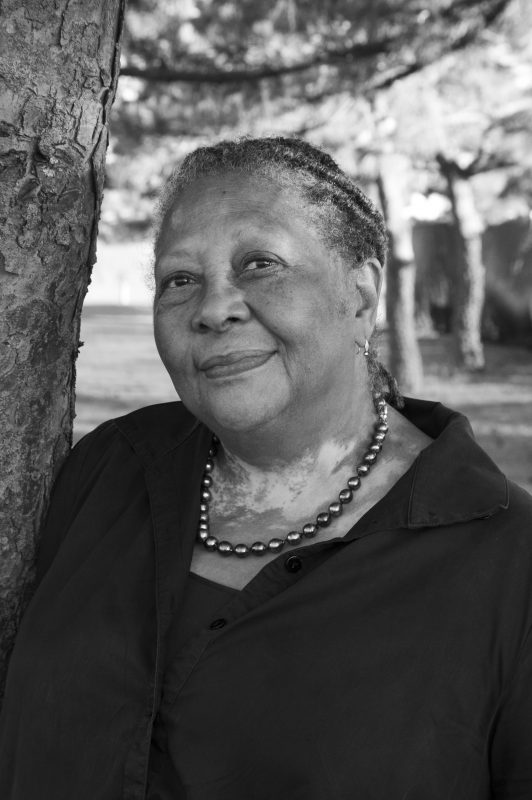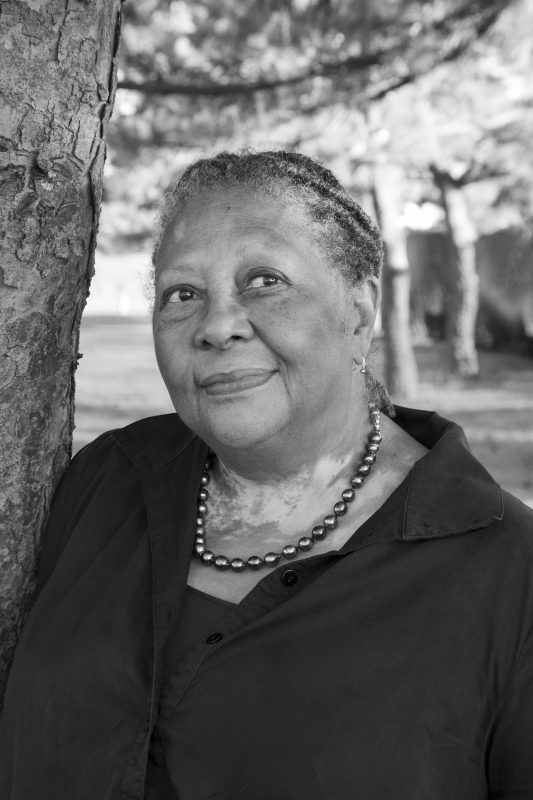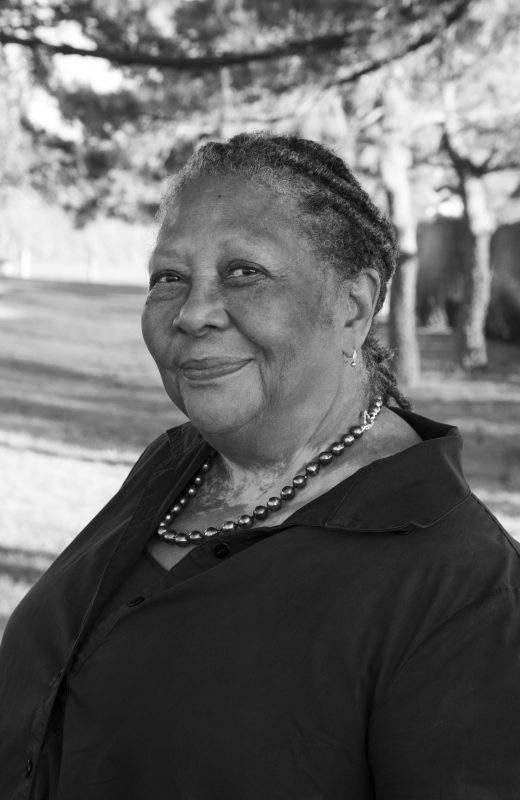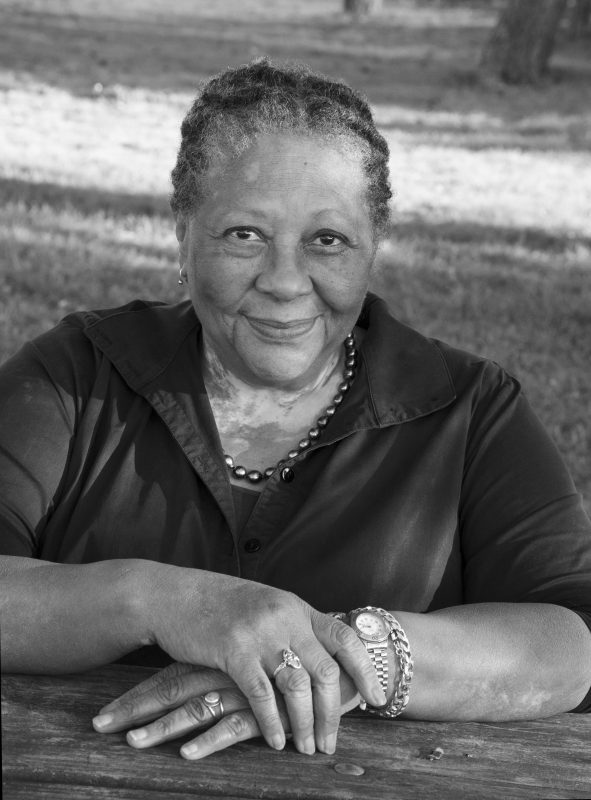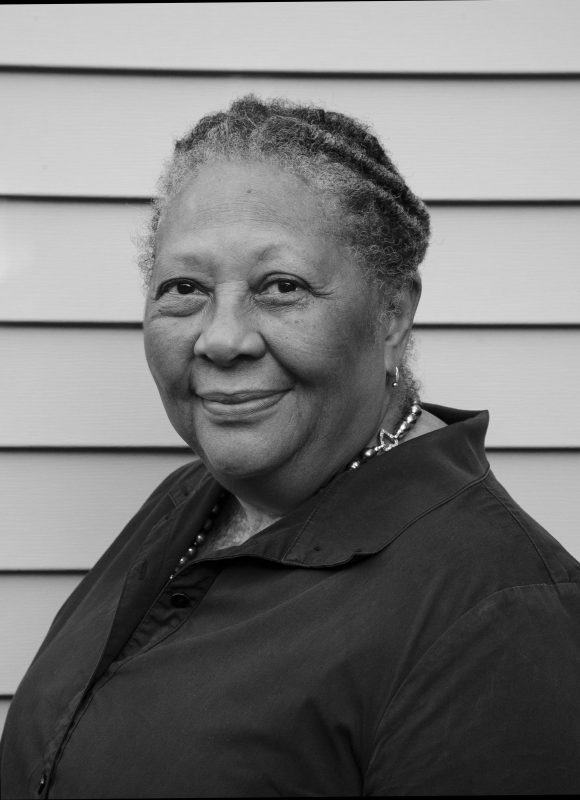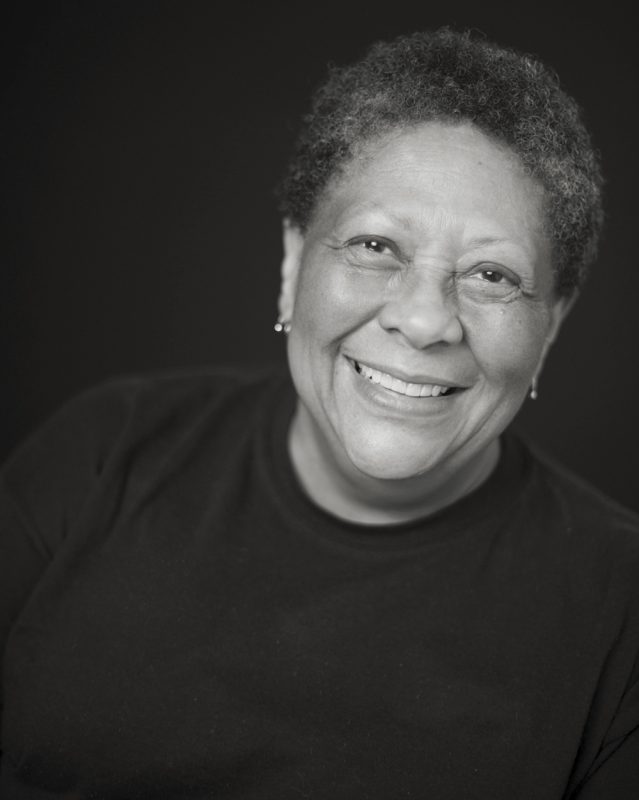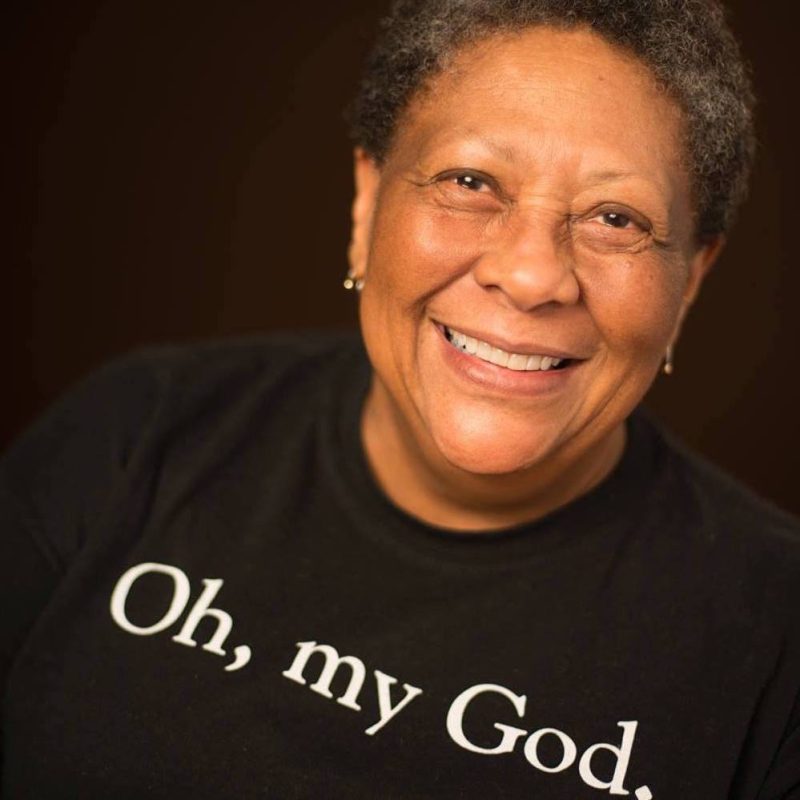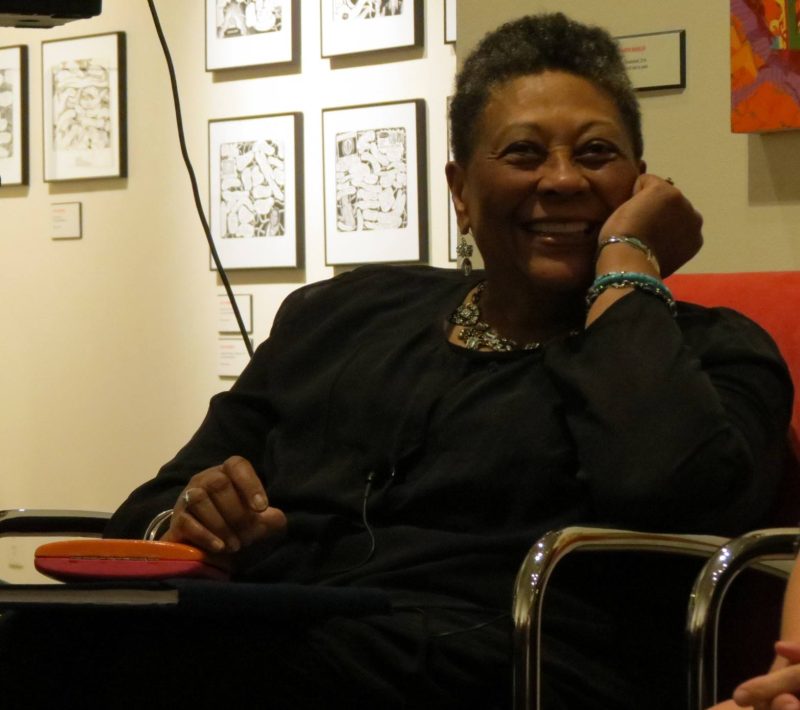
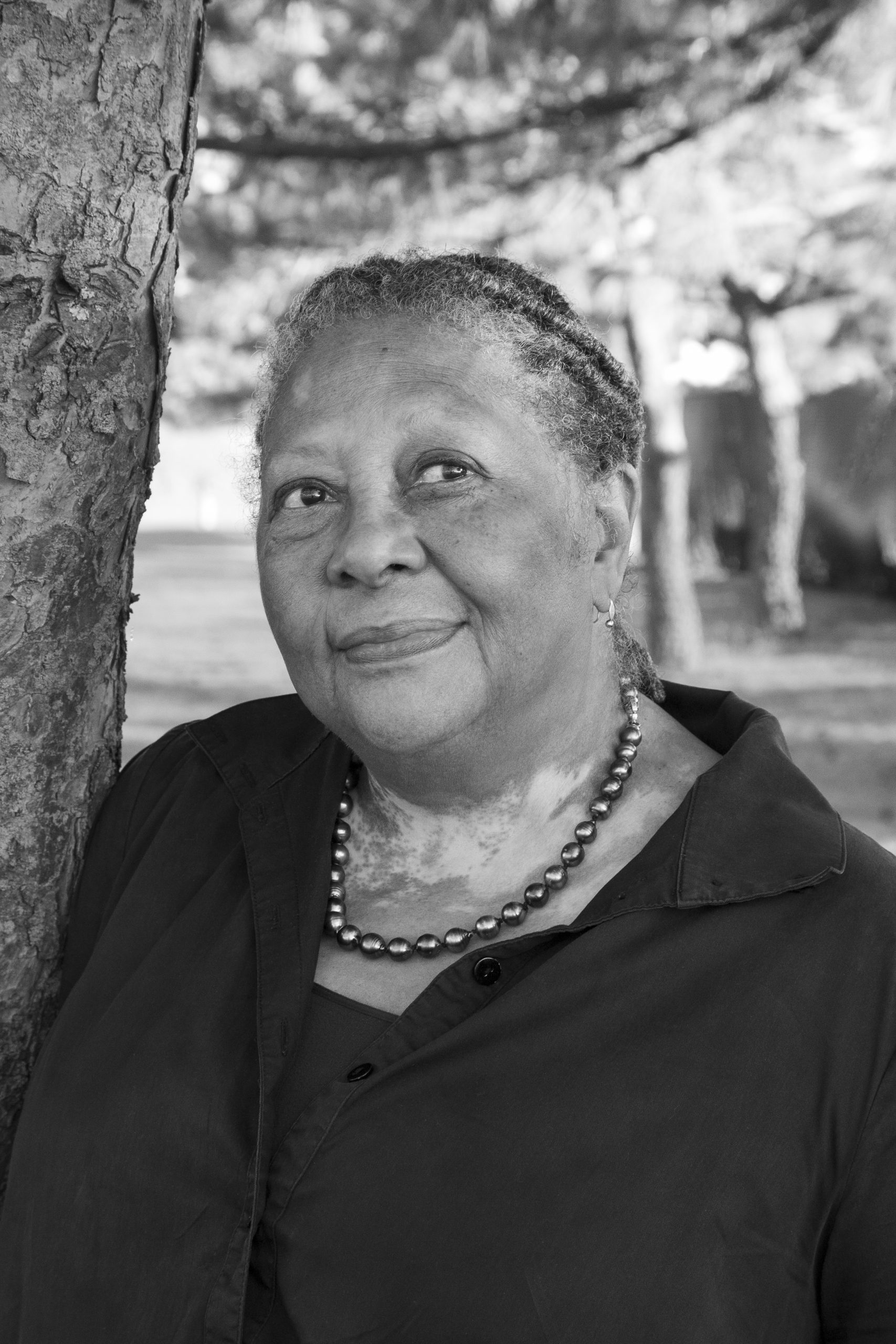
Marilyn Nelson
Award-winning Poet and Author
National Book Award Finalist
Recipient of the Frost Medal
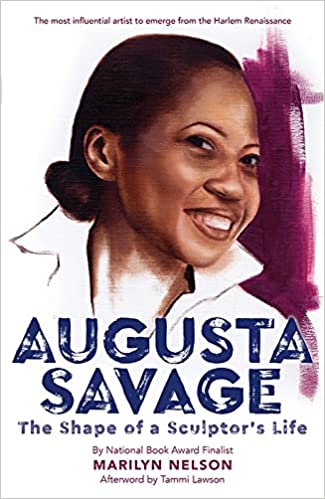
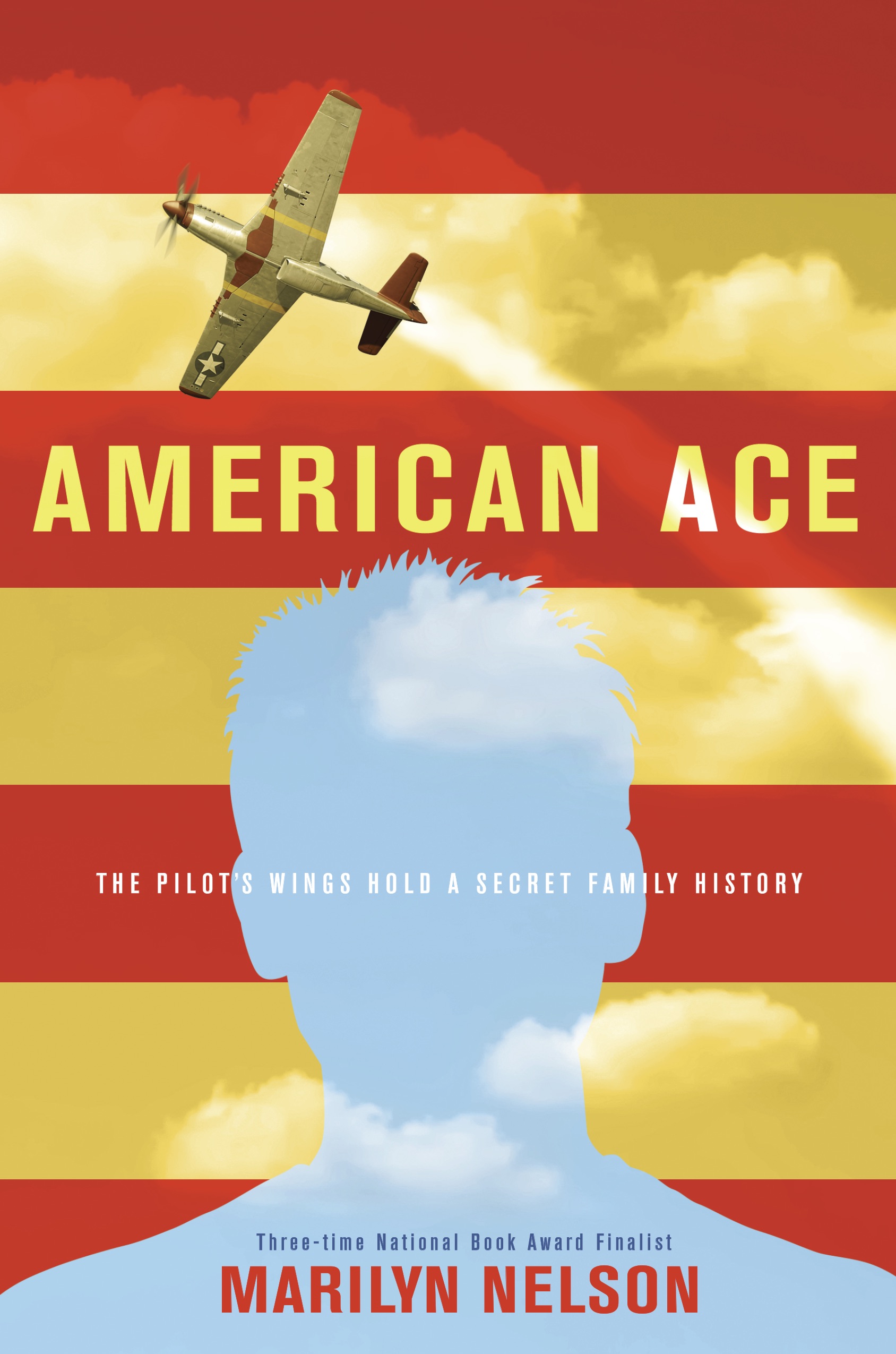
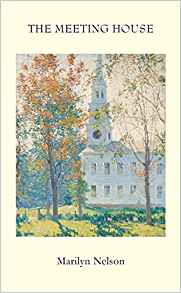
Readings &
Lecture Topics
- The Freedom Business
- Carver: A Life in Poems
- African American History in Verse
- An Evening about Emily Dickinson
- Sing, Heavenly Muse: A Poetry Workshop
- An Evening with Marilyn Nelson
Biography
“Nelson’s writing is rich in story, philosophy/theology, cend language. She moves comfortably from low to high diction and back again….Reading her work is as much a lesson in history and in human nature as it is a lesson in poetry.” —Joyce S. Brown
“Nelson’s bold and sure poems long for heaven and-happily for us-continue a lifelong affair with the occasions of earth.” —Mark Doty
“Her words teach us how to praise ourselves by praising each other.” —Yusef Komunyakaa
Marilyn Nelson, a three-time finalist for the National Book Award, is one of America’s most celebrated poets. She is the author or translator of some twenty poetry books for adults and children, five chapbooks, and a verse memoir, named one of NPR’s Best Books of 2014, entitled How I Discovered Poetry—a series of 50 unrhymed sonnets about growing up in the 1950’s in an African American military family, each poem stamped with the place and date of one of the many places her family lived.
Image Journal writes, “American history as conceived by Marilyn Nelson is the inside-out, last-shall-be-first version. She inhabits the voices of the overlooked and disenfranchised and shines light into forgotten corners that reveal essential truths about the whole….But if she is a revisionist historian’s poet, she is also a child’s poet, a mother’s poet, a housekeeper’s poet, and scientist’s poet….It’s this breadth of perspective, from pole to pole, past to present, from spheres domestic to atmospheric, that make her so remarkable. Nelson is also an openhanded citizen of the nation of writers.”
Of her many collections, The Homeplace won the 1992 Annisfield-Wolf Award and was a finalist for the 1991 National Book Award. The Fields Of Praise: New And Selected Poems won the 1998 Poets’ Prize and was a finalist for the 1997 National Book Award, the PEN Winship Award, and the Lenore Marshall Prize. The poems in this collection embrace numerous themes, including the changing natures of love, racism, motherhood, marriage, and domesticity. Carver: A Life In Poems won the 2001 Boston Globe/Hornbook Award and the Flora Stieglitz Straus Award, was a finalist for the 2001 National Book Award, a Newbery Honor Book, and a Coretta Scott King Honor Book. Fortune’s Bones was a Coretta Scott King Honor Book and won the Lion and the Unicorn Award for Excellence in North American Poetry. A Wreath For Emmett Till won the 2005 Boston Globe Horn Book Award and was a 2006 Coretta Scott King Honor Book, a 2006 Michael L. Printz Honor Book, and a 2006 Lee Bennett Hopkins Poetry Award Honor Book. The Cachoiera Tales And Other Poems won the L.E. Phillabaum Award and was a finalist for the LA Times Book Award. In 2016, her poetry collection My Seneca Village won the LA Times Book Award in Young Adult Literature.
Nelson has published books for children and young adults, including: Sweethearts of Rhythm: The Story of the Greatest All-Girl Swing Band in the World, illustrated by Jerry Pinkney (Dial Books, 2009); Ostrich and Lark, a picture-book illustrated by San (Bushman) artists (Boyds Mills, 2012); Snook Alone, illustrated by Timothy Basil Ering (Candlewick Press, 2012); Papa’s Free Day Party (Just Us Books, 2021), illustrated by Wayne Anthony Still; Lubaya’s Quiet Roar (Dial Books, 2020); and most recently, A Is For Oboe: The Orchestra’s Alphabet, co-authored with classical composer Lera Auerbach and illustrated by Paul Hoppe (Dial Books, 2022). American Ace (Penguin Random House, 2016), Nelson’s young adult historical novel in verse, uncovers a richer understanding of race, identity, and diversity. The Freedom Business (Front Street, 2008) includes and retells the Eighteenth Century slave narrative of Venture Smith, a native of Africa. She is also the author of the biography Augusta Savage: The Shape of a Sculptor’s Life ( Little, Brown: Christy Ottaviano Books, 2022).
Nelson’s honors include two NEA creative writing fellowships, the Poetry Foundation’s Ruth Lilly Poetry Prize, the Connecticut Arts Award, an A.C.L.S. Contemplative Practices Fellowship, the Department of the Army’s Commander’s Award for Public Service, a Fulbright Teaching Fellowship, a fellowship from the J.S. Guggenheim Memorial Foundation, the Wallace Stevens Award from The Academy of American Poets, and the Frost Medal: the Poetry Society of America’s most prestigious award, for a “distinguished lifetime achievement in poetry.” Nelson is a professor emerita of English at the University of Connecticut; was (2004-2010) founder/director and host of Soul Mountain Retreat, a small non-profit writers’ colony for groups of writers with shared ethnic backgrounds; and she held the office of Poet Laureate of the State of Connecticut from 2001-2006
She does not think any of this matters all that much.
Short Bio
Marilyn Nelson is the author or translator of some twenty poetry books and chapbooks for adults, young adults, and children. Many of her collections have won awards, and her poems have been widely anthologized. Nelson’s honors include two NEA creative writing fellowships, the 1990 Connecticut Arts Award, a Fulbright Teaching Fellowship (in the South of France!), a fellowship from the J.S. Guggenheim Memorial Foundation, the Ruth Lilly Award, the Robert Frost Medal, and the Wallace Stevens Award. She has served as a Chancellor of the Academy of American Poets, as Poet-in-Residence of the Poets Corner at the Cathedral of St. John the Divine, and as the Poet Laureate of the State of Connecticut. The mother of two and grandmother of two, she lives quietly, retired from a long career in academia, with her daughter and three cats.
Visit Author Website
Videos
Publications
Augusta Savage: The Shape of a Sculptor's Life
Biography, 2022
A powerful biography in poems about a trailblazing artist and a pillar of the Harlem Renaissance—with an afterword by the curator of the Schomburg Center for Research in Black Culture.
Augusta Savage was arguably the most influential American artist of the 1930s. A gifted sculptor, Savage was commissioned to create a portrait bust of W.E.B. Du Bois for the New York Public Library. She flourished during the Harlem Renaissance, and became a teacher to an entire generation of African American artists, including Jacob Lawrence, and would go on to be nationally recognized as one of the featured artists at the 1939 World’s Fair. She was the first-ever recorded Black gallerist. After being denied an artists’ fellowship abroad on the basis of race, Augusta Savage worked to advance equal rights in the arts. And yet popular history has forgotten her name. Deftly written and brimming with photographs of Savage’s stunning sculpture, this is an important portrait of an exceptional artists who, despite the limitations she faced, was compelled to forge a life through art and creativity.
American Ace
Young Adult, 2016
This riveting novel in verse, perfect for fans of Jacqueline Woodson and Toni Morrison, explores American history and race through the eyes of a teenage boy embracing his newfound identity.
When will the Constitution’s racial fractions become a healthy whole? Multiaward-winning poet Nelson attempts to answer this still-vexing question. Sixteen-year-old Connor Bianchini casually believes in his family- and religion-confirmed half-Irish, half-Italian identity. Connor’s father, Tony, finds out differently when his mother, Lucia, dies and leaves him with the inheritance of pilot’s wings, a gold class ring, and a letter, in which Lucia states that Tony is the “fruit of great love” between her and an airman nicknamed Ace. Research leads Connor and his father to the discovery that Ace’s class ring came from Wilberforce University, a historically black university, and his wings may have come from his service as one of the legendary Tuskegee Airmen. Whereas Connor embraces his “new” black ancestor, though, Tony and his other son (Connor’s half brother), Carlo, react negatively: Carlo tells his father that “bad news should be told privately,” and Tony literally has a stroke. The author’s meticulous verse is the perfect vehicle to convey the devastating fragility of racial and familial identity in an America where interracial love is still divided through the problem of the color line. Readers will join Nelson’s protagonist in quietly hoping for that healing, too.
The Meeting House
Poetry, 2016
“Artfully crafted, an engrossing and important collection of memories and moments from a pivotal time in American history.” – Kirkus
In The Meeting House, Marilyn Nelson has focused not only on the history of the First Congregational Church in Old Lyme, Connecticut, but also on slavery and bigotry in a presumably enlightened part of the Union. Her dismay is leavened by generosity of spirit, the same qualities revealed in her earlier books.
Mrs Nelson's Class
Poetry, 2017
On May 17, 1954, the U.S. Supreme Court ruled in the case of Brown v. Board of Education of Topeka, Kansas that state-sanction segregation of public schools is unconstitutional. In September 1954, in an airfare base school near Salina, Kansas, young African American teacher Mrs. Johnnie Mitchell Nelson became the teacher of a second grade class of twenty white children. Mrs. Nelson knew, but did her pupils understand they were making history together? Through a class roster of persona poems by poets Doug Anderson, Martha Collins, Alfred Corn, Annie Finch, Helen Frost, Margaret Gibson, Jeannine Hathaway, Andrew Hudgins, Mark Jarman, Peter Johnson, Meg Kearney, Ron Koertge, David Mason, Leslie Monsour, Dinty W. Moore, Marilyn Nelson, LeslEa Newman, Michael Palma, Michael Waters, Katherine Williams, this anthology presents Mrs Nelson and her class, imagining how she and her students may have experienced their unique situation.
My Seneca Village
Poetry, 2015
Quiet for more than 135 years, the voices of Seneca Village are rising again. Angela Riddles ponders being free-but-not-free. The orphaned Donnelly brothers get gold fever. A conjurer sees past his era and into ours. Drawing upon history and her exquisite imagination, Marilyn Nelson recreates the long lost community of Seneca Village. A multi-racial, multi-ethnic neighborhood in the center of Manhattan, it thrived in the middle years of the 19th century. Families prayed in its churches, children learned in its school, babies were born, and loved ones were laid to rest. Then work crews arrived to build Central Park, and Seneca Village disappeared. Illustrated in the poet’s own words — with brief prose descriptions of what she sees inside her poems — this collection takes readers back in time and deep into the mind’s eye of one of America’s most gifted writers. Included as well is a foreword that outlines the history of Seneca Village and a guide to the variety of poetic forms she employs throughout this exceptional book.
How I Discovered Poetry
Memoir, 2014
A powerful and thought-provoking Civil Rights era memoir from one of America’s most celebrated poets. Looking back on her childhood in the 1950s, Newbery Honor winner and National Book Award finalist Marilyn Nelson tells the story of her development as an artist and young woman through fifty eye-opening poems. Readers are given an intimate portrait of her growing self-awareness and artistic inspiration along with a larger view of the world around her: racial tensions, the Cold War era, and the first stirrings of the feminist movement. A first-person account of African-American history, this is a book to study, discuss, and treasure.
Faster Than Light: New and Selected Poems, 1996-2011
Poetry, 2013
Conjuring numerous voices and characters across oceans and centuries, Faster Than Light explores widely disparate experiences through the lens of traditional poetic forms. This volume contains a selection of Marilyn Nelson’s new and uncollected poems as well as work from each of her lyric histories of eighteenth-, nineteenth-, and twentieth-century African American individuals and communities. Later pieces range from the poet’s travels in Africa, Europe, and Polynesia, to poems written in collaboration with Father Jacques de Foiard Brown, a former Benedictine monk. Both personal and historical, these poems remain grounded in everyday details but reach toward spiritual and moral truths.
Sweethearts of Rhythm
Young Adult, 2009
In the 1940s, as the world was at war, a remarkable jazz band performed on the American home front. This all-female band, originating from a boarding school in the heart of Mississippi, found its way to the most famous ballrooms in the country, offering solace during the hard years of the war. They dared to be an interracial group despite the cruelties of Jim Crow laws, and they dared to assert their talents though they were women in a “man’s” profession. Told in thought-provoking poems and arresting images, this unusual look at our nation’s history is deep and inspiring. Illustrations by Jerry Pinkney.
The Freedom Business
Young Adult, 2008
Born a prince in Africa, Venture Smith would become known to history as the first man to document both his capture from Africa and life as an American slave. Nelson’s controlled verse layers this edition with insight into Smith’s stoic eighteenth-century prose. “In an extraordinary slave narrative recorded in 1798, Venture Smith remembers his capture in Guinea as a child…Smith’s original, first-person account, published in 1798, appears opposite from Nelson’s stirring poems, which are written in Venture’s voice and both intensify and comment on Smith’s experiences. …Dancy’s blurry sepia background art…includes ink lines that evoke chains and ropes and then broken bonds. It’s surprising that this essential part of American biography and history isn’t more widely known. Suggest this as a crossover title to adults.” —Booklist
Snook Alone
Children’s Book, 2010
Abba Jacob is a monk who lives on a far, far away island with his loyal rat terrier, Snook. Every day, from the wee hours of dawn till the sun sets over the sea, Snook keeps Abba Jacob company as he prays or works, tending the gardens or fixing the plumbing of the little hermitage he calls home. But when the two are separated by a ferocious storm, Snook must learn to fend for himself in the wild, all alone in a world of fierceness and wonder. Will he ever again hear the loving voice that he waits for? Simply and lyrically told by award-winning poet Marilyn Nelson and beautifully illustrated by Timothy Basil Ering with wit, warmth, and affection for the natural world, this captivating tale of friendship lost and found conveys the power of faith against all odds. A faithful little dog must survive on his own in the wild in this evocative tale of loss and reunion from acclaimed poet Marilyn Nelson and the inimitable Timothy Basil Ering.
Articles & Audio
Read What’s In Print
• Seeking the Soul of the Story: Historical Fiction In Verse— Wow! Women on Writing
• Marilyn Nelson wins the 2017 NSK Neustadt Prize for Children’s Literature – Oklahoma Daily
• Review of American Ace — Kirkus Review
• Review of How I Discovered Poetry — Boston Globe
• Review of How I Discovered Poetry — Kirkus Review
• Review of How I Discovered Poetry — Publishers Weekly
• A Conversation with Marilyn Nelson — School Library Journal
• Review of A Wreath for Emmett Till — Dallas Library
Listen to Audio
• Listen to Marilyn Nelson Read ‘A Wreath for Emmett Till’ – NPR
• Marilyn Nelson Interview Spectrum West with Al Ross
• Communal Pondering in A Noisy World – On Being
• Interview about How I Discovered Poetry — All Things Considered
Selected Writings
• Read “The Punch Line” by Marilyn Nelson – The Hudson Review
HOW I DISCOVERED POETRY
It was like soul-kissing, the way the words
filled my mouth as Mrs. Purdy read from her desk.
All the other kids zoned an hour ahead to 3:15,
but Mrs. Purdy and I wandered lonely as clouds borne
by a breeze off Mount Parnassus. She must have seen
the darkest eyes in the room brim: The next day
she gave me a poem she’d chosen especially for me
to read to the all-except-for-me white class.
She smiled when she told me to read it, smiled harder,
said oh yes I could. She smiled harder and harder
until I stood and opened my mouth to banjo-playing
darkies, pickaninnies, disses and dats. When I finished,
my classmates stared at the floor. We walked silent
to the buses, awed by the power of words.
— from How I Discovered Poetry
HOW I CAME BY MY NAME
Four casks of rum and a bolt of calico.
(A quarter of the list price. A terrific deal,
a steal for the ship’s steward who bought a boy
onboard as two-legged cargo was being loaded
and stowed.) Four casks of rum and a piece of cloth.
(For breath, dreams, heartbeat.) The boy who was Broteer
disappeared. A business venture took his place.
Same face, same eyes, but inside utterly transformed,
harmed past healing by the cheapening of human life.
Breath, dreams, pulse, traded for cloth and alcohol,
were capital. There was profit in the pain,
the chains. Venture. There were whole worlds to gain.
—from The Freedom Business
CLAY
Beauty is the vocation
of the earth.
—William Bryant Logan
God’s breath on a compound of silica,
alumina and various oxides—
primarily iron-gave Adam life.
There is a primal, almost mystical
connection between humankind and clay,
from the footed, bellied first receptacles
to frescoed Renaissance cathedral walls.
To Carver’s eye, the muddy creek banks say
Here to be dug up, strained and painted on,
is loveliness the poorest can afford:
azures, ochres . . . Scraps of discarded board
are landscapes. Cabins undistinguished brown
bloom like slaves freed to struggle toward self-worth.
Beauty is commonplace, as cheap as dirt.
—from Carver: A Life in Poems
DAUGHTERS, 1900
Five daughters, in the slant light on the porch,
are bickering. The eldest has come home
with new truths she can hardly wait to teach.
She lectures them: the younger daughters search
the sky, elbow each others’ ribs, and groan.
Five daughters, in the slant light on the porch
and blue-sprigged dresses, like a stand of birch
saplings whose leaves are going yellow-brown
with new truths. They can hardly wait to teach,
themselves, to be called “Ma’am,” to march
high-heeled across the hanging bridge to town.
Five daughters. In the slant light on the porch
Pomp lowers his paper for a while, to watch
the beauties he’s begotten with his Ann:
these new truths they can hardly wait to teach.
The eldest sniffs, “A lady doesn’t scratch.”
The third snorts back, “Knock, knock: nobody home.”
The fourth concedes, “Well, maybe not in church. . .”
Five daughters in the slant light on the porch.
—from The Fields of Praise (reprinted from The Homeplace)


